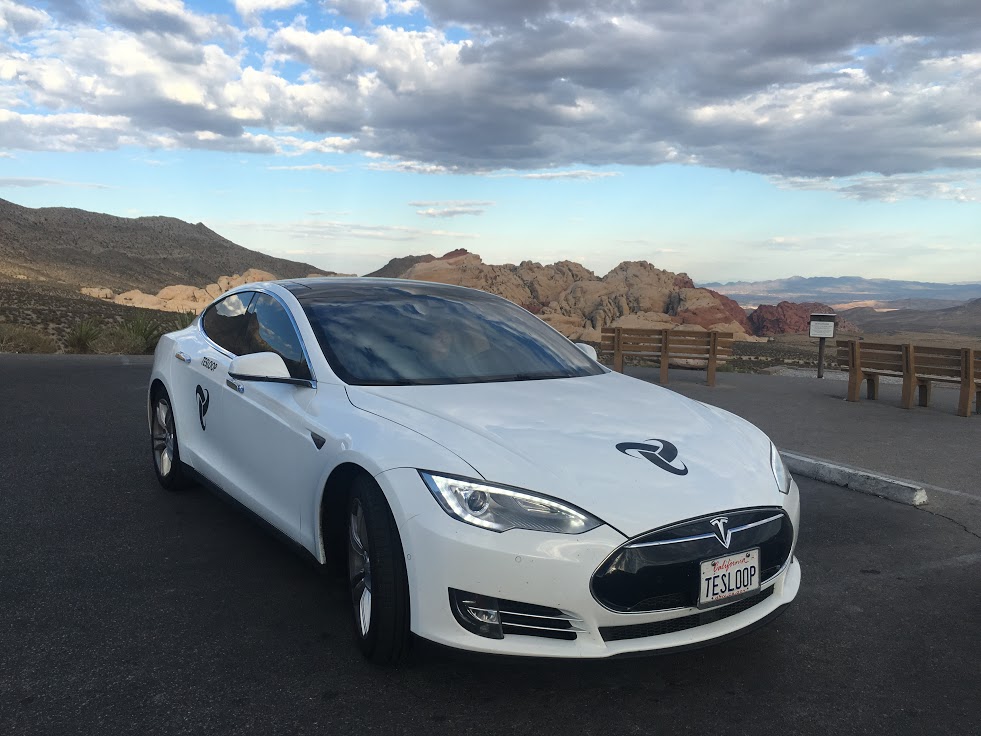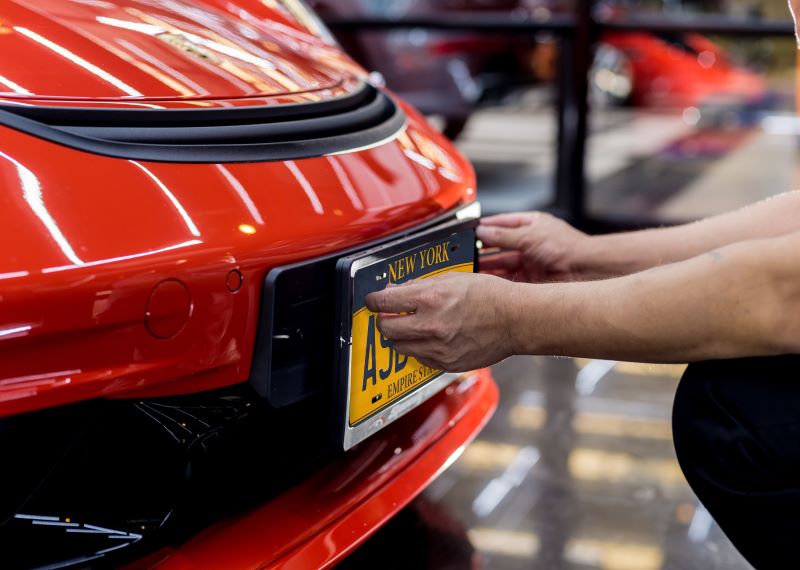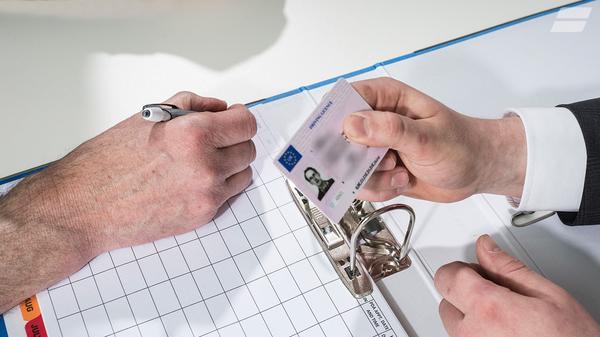Buying a car with 200K miles can be risky but also cost-effective. Evaluate its maintenance history and condition first.
Cars with high mileage can be a great bargain if well-maintained. Focus on the vehicle’s service records, previous ownership, and overall condition. High-mileage cars often have depreciated significantly, making them cheaper. Ensure a thorough inspection by a trusted mechanic before making a decision.
Check for potential issues, such as engine wear and transmission problems. Consider the make and model’s reputation for longevity. Some brands are known for lasting well beyond 200K miles. Remember, ongoing maintenance costs may be higher. Weigh the pros and cons carefully to make an informed decision.

Credit: www.reddit.com
High Mileage Cars: Bargains Or Money Pits?
Buying a car with 200K miles can be tricky. Some see them as hidden gems, while others fear endless repairs. Let’s explore the pros and cons.
Evaluating Value Vs. Cost
First, consider the purchase price. High mileage cars are cheaper. This can be great for those on a budget. But, think about future costs. Will repairs add up?
Look at the car’s history. A well-maintained car is a better deal. Check service records. Regular oil changes and timely repairs matter. They show the car was cared for.
| Factor | Importance |
|---|---|
| Service Records | High |
| Purchase Price | Medium |
| Future Repairs | High |
Consider the brand. Some brands last longer. Research which cars hold up well over time. Japanese brands often last longer.
Potential Risks Of Older Vehicles
Older cars come with risks. Parts wear out. Engines, transmissions, and brakes might need replacing. These are costly repairs.
- Engine Issues
- Transmission Problems
- Brake Wear
High mileage cars may need more frequent maintenance. This includes oil changes, tire rotations, and brake checks. These costs add up.
Insurance can be higher for older cars. Some insurers charge more for high mileage vehicles. Always get an insurance quote first.
Finally, think about reliability. High mileage cars may break down more. This means more time in the shop and less on the road.
The 200k Mile Stigma: Myths Vs. Facts
Many people hesitate to buy a car with 200K miles. This hesitation is rooted in various misconceptions. Understanding these myths and the actual facts can help you make an informed decision.
Common Misconceptions
- Cars with 200K miles are unreliable: Many believe high-mileage cars break down often. This is not always true.
- Maintenance costs are too high: Some think that upkeep for such cars is very expensive.
- Resale value is poor: People assume these cars have low resale value. This isn’t always the case.
Realities Of Vehicle Longevity
Modern cars are built to last longer than before. Many reach 200K miles without major issues. Regular maintenance can significantly extend a car’s life.
| Myth | Fact |
|---|---|
| High-mileage cars are unreliable. | Properly maintained cars can be reliable even past 200K miles. |
| Maintenance costs are too high. | Maintenance costs can be manageable with regular upkeep. |
| Low resale value. | Well-maintained cars can still have decent resale value. |
High-mileage cars often have detailed service records. This documentation provides insight into the car’s condition. Knowing the car’s history can be reassuring.
Some brands are known for their longevity. Brands like Toyota and Honda often surpass the 200K mile mark with ease. They have a reputation for durability and reliability.
Buying a car with 200K miles can be a smart choice. It can save you money upfront and still offer reliable service. Just ensure the car has been well-maintained.
Inspection Checklist For High-mileage Cars
Buying a car with 200K miles can be risky. Use this checklist to make sure it’s a good deal. Look at the most important parts and seek professional help.
Critical Components To Review
Check these parts carefully:
- Engine: Listen for odd noises. Look for leaks. Check the oil color.
- Transmission: Ensure smooth shifting. Inspect for fluid leaks.
- Brakes: Test for noise or vibration. Look at pad and rotor wear.
- Suspension: Check for worn-out shocks or struts. Look for uneven tire wear.
- Exhaust System: Listen for loud sounds. Inspect for rust or holes.
- Cooling System: Check coolant levels. Inspect hoses for cracks.
Seeking Professional Evaluations
Get a trusted mechanic to inspect the car. They can find hidden issues. Here’s what they should check:
- Diagnostic Scan: Checks engine codes and electronic systems.
- Compression Test: Ensures engine cylinders are in good shape.
- Fluid Analysis: Identifies contamination in oil and coolant.
- Brake Inspection: Looks at pad thickness and rotor condition.
A professional evaluation helps you avoid costly repairs. It gives you peace of mind before buying.
Depreciation Curve: Understanding Resale Value
When buying a car with 200K miles, understanding the depreciation curve is crucial. The depreciation curve shows how a car’s value decreases over time. This helps you know the resale value of a high-mileage car.
How Mileage Affects Resale
Mileage plays a big role in a car’s resale value. High mileage often means a lower price. Buyers worry about parts wearing out faster. So, a car with 200K miles will sell for less than a low-mileage car.
Here’s a simple table to show how mileage impacts resale:
| Mileage | Resale Value |
|---|---|
| 0-50K miles | Highest |
| 50K-100K miles | Moderate |
| 100K-150K miles | Lower |
| 150K-200K miles | Lowest |
Cars lose value as they gain miles. This simple table helps understand the trend.
When High Mileage Is Less Of A Concern
High mileage is less of a concern if the car has been well-maintained. Service records show the car’s care history. Regular maintenance can keep a high-mileage car running well.
- Check for regular oil changes
- Look for replaced parts like belts and hoses
- Inspect the brake system
- Ensure the transmission works smoothly
Another factor is the car’s make and model. Some brands are known for longevity. A well-maintained Toyota or Honda can run beyond 200K miles. These cars retain value better than other brands.
High mileage cars can be good buys if they have a strong service history and reliable brand. Always check these factors before making a decision.
Maintenance Records: The Car’s Lifeline
Buying a car with 200K miles can be daunting. One crucial factor to consider is the maintenance records. These records provide insight into the car’s past health. They are the lifeline that tells you how well the car has been cared for.
Importance Of Service History
The service history shows regular maintenance. This includes oil changes, brake inspections, and tire rotations. A well-documented service history means the car received proper care.
- Regular oil changes keep the engine healthy.
- Brake inspections ensure safety.
- Tire rotations help with even wear.
These records give you peace of mind. They show the car was not neglected. They also indicate fewer surprises down the road.
Red Flags In Maintenance Logs
While reviewing the maintenance logs, watch for red flags. These can indicate potential issues.
| Red Flag | Why It’s a Concern |
|---|---|
| Missed Services | May lead to engine problems. |
| Frequent Repairs | Could signal ongoing issues. |
| Lack of Records | Uncertain maintenance history. |
Missed services can lead to bigger problems. Frequent repairs might mean the car is unreliable. A lack of records makes it hard to trust the car’s condition.
Check for these red flags before buying. They can save you from future headaches.
Engine And Transmission: The Heart Of The Decision
Buying a car with 200K miles can be a tough choice. One of the most critical factors is the engine and transmission. These components are the heart of your vehicle. Let’s break down why they matter so much.
Assessing The Powertrain’s Health
The engine and transmission make up the powertrain. This is where the car gets its power. It’s vital to check their health before buying a high-mileage car. Start by looking for any strange noises. Listen for knocking sounds or unusual vibrations. These can be signs of serious problems.
Check the engine oil and transmission fluid. Clean fluids often mean well-maintained parts. Look at the service records. Regular oil changes and transmission services are good signs. A car with a well-maintained powertrain can last longer.
Cost Of Potential Repairs
High-mileage cars may need repairs soon. It’s essential to know the potential costs. Engine and transmission repairs can be expensive. Replacing an engine can cost between $3,000 and $7,000. Transmission repairs range from $1,000 to $4,000. These costs can add up quickly.
Consider getting a pre-purchase inspection. This can help identify any looming issues. A mechanic can give you an estimate of potential repair costs. It’s better to know these costs upfront.
Here is a quick comparison of potential repair costs:
| Component | Repair Cost |
|---|---|
| Engine Replacement | $3,000 – $7,000 |
| Transmission Repair | $1,000 – $4,000 |
Weigh these costs against the price of the car. Sometimes, paying a bit more for a lower-mileage car can save money in the long run.
Cost Analysis: Comparing Long-term Expenses
Buying a car with 200K miles can save you money upfront. However, it’s important to consider the long-term expenses. This includes costs for maintenance, insurance, and registration. Understanding these costs helps you make an informed decision.
Upfront Savings Vs. Ongoing Maintenance
A car with 200K miles costs less initially. This is because it has depreciated significantly. Here is a simple table comparing upfront costs and ongoing maintenance:
| Expense | New Car | 200K Miles Car |
|---|---|---|
| Upfront Cost | $20,000 | $5,000 |
| Annual Maintenance | $500 | $1,500 |
While you save on the purchase, expect higher maintenance costs. Older cars often need more repairs and replacements. These can include:
- Brakes
- Suspension
- Transmission
Insurance And Registration Implications
Insurance for older cars is usually cheaper. This is because the car’s value is lower. However, it’s essential to check the insurance rates before buying.
Registration fees might also be lower. This depends on your state’s regulations. Usually, older cars have reduced registration costs. Here are some considerations:
- Check insurance rates for high-mileage cars.
- Review state registration fees for older vehicles.
- Factor in any additional fees or taxes.
By understanding these factors, you can budget more accurately. This helps you avoid unexpected expenses and make a sound financial decision.

Credit: techcrunch.com
Reliability Ratings: Which Brands Go The Distance?
Considering a car with 200K miles might seem daunting. But some brands are known for their durability and reliability, even with high mileage. This section focuses on reliability ratings and highlights which brands go the distance.
Trusted Models With 200k+ Potential
Some car models consistently perform well beyond 200K miles. These models have gained a reputation for longevity and reliability.
- Toyota Camry – Known for its robust engine and minimal maintenance needs.
- Honda Accord – Praised for its long-lasting performance and fuel efficiency.
- Subaru Outback – Famous for its all-wheel drive and durability.
- Ford F-150 – A top choice for trucks with a strong engine and solid build.
Brands Known For Durability
Certain brands have a track record of producing durable vehicles. These brands are trusted for their engineering and build quality.
| Brand | Key Features |
|---|---|
| Toyota | High resale value, low maintenance costs |
| Honda | Reliable engines, high fuel efficiency |
| Subaru | All-wheel drive, strong safety ratings |
| Ford | Durable trucks, strong performance |
Choosing a car from these brands can be a safe bet. They are known for their longevity and reliability, even at high mileage.
Extended Warranties And Service Plans: Are They Worth It?
Buying a car with 200K miles can be a gamble. Extended warranties and service plans might offer peace of mind. But are they really worth it? Let’s dive into the details.
Pros And Cons Of Additional Coverage
| Pros | Cons |
|---|---|
|
|
Understanding The Fine Print
Read the fine print carefully. Some warranties have many exclusions. These exclusions might include wear-and-tear items. Always check what is covered and what is not.
Service plans can also have specific conditions. Some require you to use certain repair shops. Others may have limits on the number of claims. Knowing these details helps you make an informed decision.
Extended warranties and service plans can be beneficial. But understanding the fine print is crucial. This ensures you get the most value for your money.
Final Verdict: Making An Informed Decision
Buying a car with 200K miles requires careful thought. You must weigh the pros and cons. Use the following sections to guide your decision-making process.
Balancing Budget And Reliability
Buying a car with high mileage can save money. But it may come with risks. Older cars often need more repairs. Consider the car’s maintenance history. Check for regular oil changes and timely repairs. Cars with good records may still be reliable.
Look for signs of wear and tear. Inspect the tires, brakes, and engine. If these parts are in good shape, the car may last longer. Ask for a pre-purchase inspection. A mechanic can find hidden issues. This small cost can save you money later.
| Factors | Considerations |
|---|---|
| Price | High-mileage cars are cheaper |
| Maintenance | Frequent repairs may be needed |
| Condition | Good history can mean reliability |
When To Walk Away
Sometimes it’s best to walk away. If the car has a poor maintenance history, think twice. Avoid cars with major accidents. They may have hidden damage. Rust is another red flag. It can spread and weaken the car’s structure.
- Check for large oil leaks.
- Listen for strange engine noises.
- Smell for burning odors.
If you notice these issues, it’s wise to walk away. High repair costs can make the car a bad deal. Trust your instincts. If something feels off, it’s better to pass on the car.

Credit: www.reddit.com
Frequently Asked Questions
Is A Car Still Good With 200k Miles?
Yes, a car with 200k miles can still be good. Regular maintenance and proper care are crucial. Check service history and condition.
Is It Worth Fixing A Car With 200k Miles?
Fixing a car with 200k miles depends on its condition. Assess repair costs versus replacement value. Often, it’s better to replace.
How Many Miles Is Too Many For A Used Car?
For a used car, over 100,000 miles can be considered high. Always check maintenance history and condition.
What Does A Car Need After 200k Miles?
A car with 200k miles needs regular maintenance. Check the engine, transmission, brakes, and suspension. Replace worn-out parts. Ensure fluids are topped up and change oil frequently. Inspect tires and battery.
Is 200k Miles Too Much For A Car?
200K miles isn’t necessarily too much if the car is well-maintained.
What Should I Check On A High-mileage Car?
Check the maintenance history, engine condition, and transmission health.
Can A Car With 200k Miles Be Reliable?
Yes, a well-maintained car with 200K miles can still be reliable.
How Long Can A Car With 200k Miles Last?
With proper care, it can last several more years.
Conclusion
Buying a car with 200K miles can be a smart choice. Consider the vehicle’s maintenance history and current condition. High mileage doesn’t always mean poor quality. Evaluate your budget and potential repair costs. Make an informed decision based on thorough research and inspection.
This approach ensures you get the best value.



